
“
Mindfulness Practices for Stress Relief: A Path to Inner Peace
Mindfulness practices have been shown to be highly effective in reducing stress and anxiety, and promoting overall well-being. By incorporating mindfulness into your daily life, you can learn to manage stress and live a more peaceful and fulfilling existence. In this article, we will explore the benefits of mindfulness practices for stress relief, and provide guidance on how to get started with mindfulness meditation, yoga, and breathwork.
What is Mindfulness?

Mindfulness is the practice of being present in the moment, without judgment or distraction. It involves paying attention to your thoughts, feelings, and physical sensations, without trying to change or react to them. Mindfulness is about cultivating awareness and acceptance of the present moment, and can be practiced through various techniques such as meditation, yoga, and breathwork.
Benefits of Mindfulness for Stress Relief
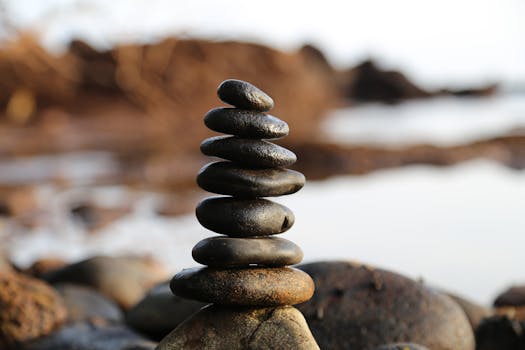
Research has shown that mindfulness practices can have a significant impact on reducing stress and anxiety. Some of the benefits of mindfulness for stress relief include:
- Reduced symptoms of anxiety and depression
- Improved sleep quality
- Increased feelings of relaxation and calmness
- Enhanced cognitive function and concentration
- Improved emotional regulation and resilience
Getting Started with Mindfulness Meditation

Mindfulness meditation is a simple yet powerful practice that can be done anywhere, at any time. To get started with mindfulness meditation, find a quiet and comfortable place to sit, close your eyes, and focus on your breath. When your mind wanders, gently bring your attention back to your breath without judgment. Start with short periods of meditation, such as 5-10 minutes, and gradually increase as you become more comfortable with the practice.
Yoga and Breathwork for Stress Relief
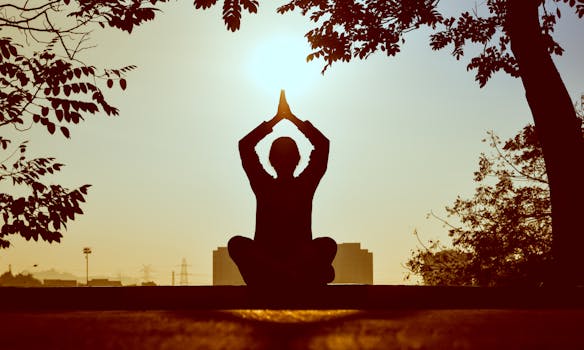
Yoga and breathwork are also powerful tools for stress relief and can be practiced in conjunction with mindfulness meditation. Yoga combines physical movement with deep breathing and meditation, and can help to reduce stress and anxiety by promoting relaxation and flexibility. Breathwork, such as diaphragmatic breathing, can also help to calm the nervous system and reduce stress and anxiety.
Tips for Incorporating Mindfulness into Your Daily Life

Incorporating mindfulness into your daily life can be simple and straightforward. Here are some tips to get you started:
- Start small: Begin with short periods of mindfulness practice, such as 5-10 minutes, and gradually increase as you become more comfortable with the practice.
- Make it a habit: Incorporate mindfulness into your daily routine, such as right after waking up or before bed.
- Find a quiet space: Identify a quiet and comfortable place to practice mindfulness, free from distractions and interruptions.
- Be consistent: Commit to practicing mindfulness regularly, even if it’s just for a few minutes a day.
Conclusion

Mindfulness practices have been shown to be highly effective in reducing stress and anxiety, and promoting overall well-being. By incorporating mindfulness into your daily life, you can learn to manage stress and live a more peaceful and fulfilling existence. Remember to start small, be consistent, and make mindfulness a habit. With regular practice, you can experience the many benefits of mindfulness and enjoy a more balanced and fulfilling life.
Mindfulness practices for stress relief, including meditation, yoga, and breathwork, can be a powerful tool in reducing stress and anxiety, and promoting overall well-being. By incorporating these practices into your daily life, you can learn to manage stress and live a more peaceful and fulfilling existence.
Mindfulness and Meditation

Meditation is a powerful mindfulness practice that can help reduce stress and anxiety. By focusing on the breath, body sensations, or emotions, meditation can help calm the mind and promote relaxation. Regular meditation practice has been shown to reduce symptoms of anxiety and depression, improve sleep quality, and increase feelings of relaxation and calmness.
Yoga for Stress Relief
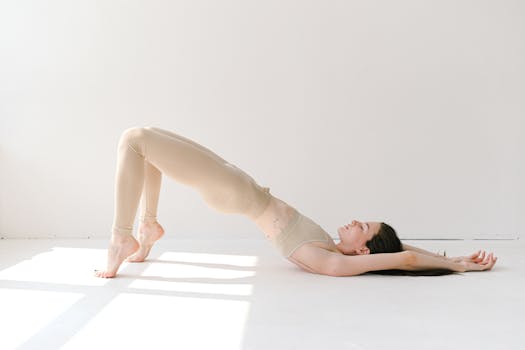
Yoga is a holistic practice that combines physical movement, breathwork, and meditation to promote relaxation and reduce stress. Yoga can help reduce symptoms of anxiety and depression, improve sleep quality, and increase feelings of relaxation and calmness. By combining physical movement with deep breathing and meditation, yoga can help promote relaxation and reduce stress and anxiety.
Breathwork for Stress Relief
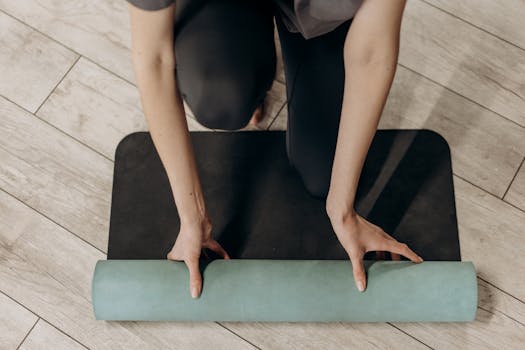
Breathwork is a powerful mindfulness practice that can help reduce stress and anxiety. By focusing on the breath, breathwork can help calm the nervous system and promote relaxation. Diaphragmatic breathing, in particular, can help reduce stress and anxiety by promoting relaxation and reducing symptoms of anxiety and depression.
Conclusion
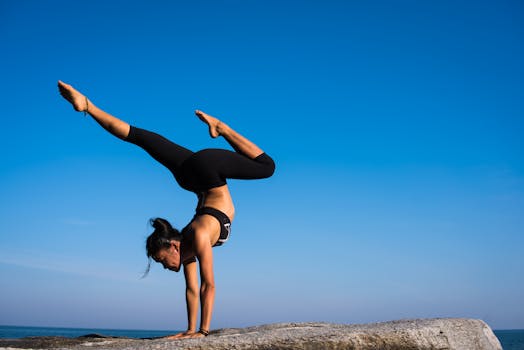
In conclusion, mindfulness practices for stress relief, including meditation, yoga, and breathwork, can be a powerful tool in reducing stress and anxiety, and promoting overall well-being. By incorporating these practices into your daily life, you can learn to manage stress and live a more peaceful and fulfilling existence. Remember to start small, be consistent, and make mindfulness a habit. With regular practice, you can experience the many benefits of mindfulness and enjoy a more balanced and fulfilling life.
Additional Tips for Mindfulness Practice
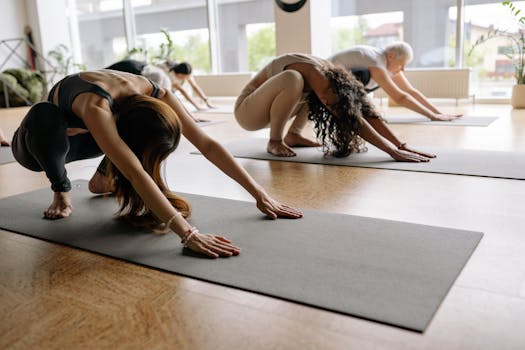
In addition to the tips mentioned earlier, here are some additional tips for mindfulness practice:
- Be patient: Mindfulness practice takes time and patience, so be gentle with yourself and don’t get discouraged if your mind wanders.
- Find a mindfulness community: Connecting with others who practice mindfulness can be a great way to stay motivated and inspired.
- Try different mindfulness practices: Experiment with different mindfulness practices, such as body scan meditation, walking meditation, or loving-kindness meditation, to find what works best for you.
Common Challenges in Mindfulness Practice

While mindfulness practice can be highly beneficial, it’s not without its challenges. Here are some common challenges that people face in mindfulness practice:
- Difficulty quieting the mind: Many people struggle with quieting their mind and focusing on the present moment.
- Physical discomfort: Sitting for long periods can be uncomfortable, especially for those with back or joint problems.
- Emotional challenges: Mindfulness practice can bring up difficult emotions, such as anxiety or sadness, which can be challenging to work through.
Overcoming Challenges in Mindfulness Practice
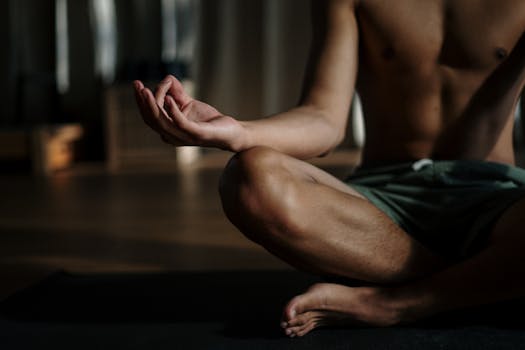
While challenges are a natural part of mindfulness practice, there are ways to overcome them. Here are some tips for overcoming common challenges in mindfulness practice:
- Start small: Begin with short periods of mindfulness practice and gradually increase as you become more comfortable.
- Find a comfortable seated position: Experiment with different seated positions, such as using a cushion or chair, to find what works best for you.
- Practice self-compassion: Be gentle with yourself and remember that it’s okay to experience difficult emotions or physical discomfort during mindfulness practice.
Conclusion

In conclusion, mindfulness practices for stress relief, including meditation, yoga, and breathwork, can be a powerful tool in reducing stress and anxiety, and promoting overall well-being. While challenges are a natural part of mindfulness practice, there are ways to overcome them. By starting small, finding a comfortable seated position, and practicing self-compassion, you can overcome common challenges and experience the many benefits of mindfulness practice.
Mindfulness and Self-Care

Mindfulness and self-care are closely linked, as mindfulness practice can help promote self-care and overall well-being. By prioritizing mindfulness practice, you can better take care of yourself and promote overall health and well-being.
The Importance of Self-Care

Self-care is essential for maintaining overall health and well-being. By prioritizing self-care, you can reduce stress and anxiety, improve sleep quality, and increase feelings of relaxation and calmness.
Conclusion

In conclusion, mindfulness practices for stress relief, including meditation, yoga, and breathwork, can be a powerful tool in reducing stress and anxiety, and promoting overall well-being. By incorporating these practices into your daily life, you can learn to manage stress and live a more peaceful and fulfilling existence. Remember to prioritize self-care and make mindfulness a habit. With regular practice, you can experience the many benefits of mindfulness and enjoy a more balanced and fulfilling life.
Mindfulness practices for stress relief are a powerful tool in reducing stress and anxiety, and promoting overall well-being. By incorporating these practices into your daily life, you can learn to manage stress and live a more peaceful and fulfilling existence.
Final Thoughts

In final thoughts, mindfulness practices for stress relief, including meditation, yoga, and breathwork, can be a powerful tool in reducing stress and anxiety, and promoting overall well-being. By incorporating these practices into your daily life, you can learn to manage stress and live a more peaceful and fulfilling existence. Remember to start small, be consistent, and make mindfulness a habit. With regular practice, you can experience the many benefits of mindfulness and enjoy a more balanced and fulfilling life.
Additional Resources
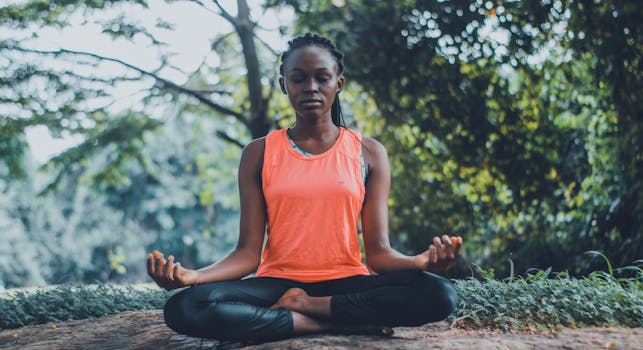
For additional resources on mindfulness practices for stress relief, please visit the following websites:
These websites offer a wealth of information and resources on mindfulness practices, including meditation, yoga, and breathwork. They also offer guided meditations, yoga classes, and other mindfulness practices to help you get started with mindfulness.
Conclusion

In conclusion, mindfulness practices for stress relief, including meditation, yoga, and breathwork, can be a powerful tool in reducing stress and anxiety, and promoting overall well-being. By incorporating these practices into your daily life, you can learn to manage stress and live a more peaceful and fulfilling existence. Remember to start small, be consistent, and make mindfulness a habit. With regular practice, you can experience the many benefits of mindfulness and enjoy a more balanced and fulfilling life.
Thank you for reading this article on mindfulness practices for stress relief. We hope you found it helpful and informative. Remember to prioritize mindfulness practice and make it a habit. With regular practice, you can experience the many benefits of mindfulness and enjoy a more peaceful and fulfilling life.
See more:
https://www.mindful.org/
https://www.headspace.com/
https://www.calm.com/






